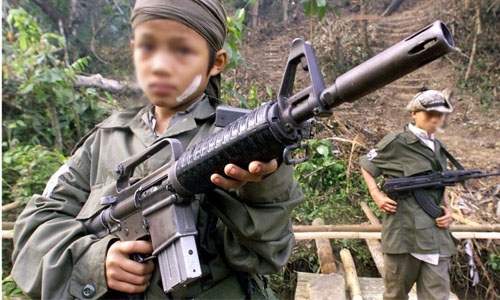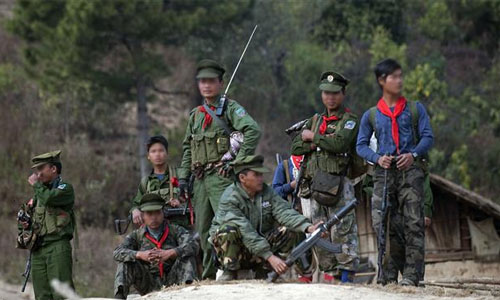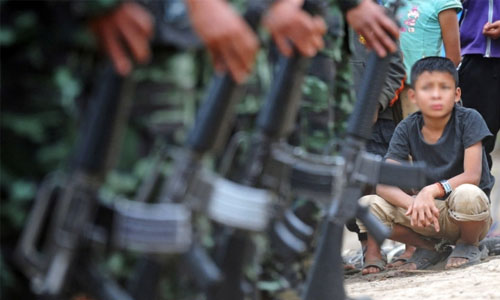Haunted life for Myanmar's child soldiers
Yangon : Darkness was falling across the pagoda outside Yangon when a military officer walked up to Su Thet Htoo and gave him two choices: go to jail or join the untold ranks of child soldiers in Myanmar’s army.
Frightened and alone, the then 16-year-old chose military service, beginning a two-year ordeal that would see him cut off from his family, beaten, sent to the front line and turn into an alcoholic.
No one knows exactly how many children are still among the estimated 500,000 troops that serve in Myanmar’s military or the rebel militias waging insurgencies against the state.
The army and seven ethnic armed groups have been listed by the United Nations as using underage fighters -- those below the age of 18 -- as they clash in the country’s borderlands.
In major cities such as Yangon and Mandalay, recruiters are known to scour parks, pagodas and bus and railway stations for poor and vulnerable boys who they threaten, drug or tempt with promises of well-paying jobs.
Many, like Su Thet Htoo, are taken without a word to their families, who assume they are dead after months without contact.
Now 21, the aspiring mechanic says he is focused on building a new life on his own after years of painful reintegration into society.
“I do not want to remember those experiences. I feel pain whenever I remember what happened,” he tells.
“I’m still trying to make amends.”
‘I became an alcoholic’
Recruitment of underage fighters has slowed since the military stepped down from junta rule in 2011 and started easing its grip after five decades of brutal domination that drove the Southeast Asian country into dire poverty.
The army vowed to end the use of child soldiers the following year and has worked with rights groups to release hundreds of youngsters in sporadic batches.
But experts say children remain at risk as new underage recruits continue to trickle into the military.
“The Tatmadaw (Myanmar army) have to keep up a level of strength, but they have difficulties in recruiting, so they snatch people who are vulnerable,” said Piyamal Pichaiwongse, deputy liaison officer for the International Labour Organization (ILO).
Many are sent to conflict areas such as the northeastern states of Kachin and Shan, where the army is fighting rebel groups, to be put to work as soldiers or in support roles carrying supplies or growing food.
Local children are often swept up in the clashes -- many are forced to join the ethnic insurgents but others volunteer to fight in a bid to protect their communities.
Su Thet Htoo was taken to the Danyinkone recruitment camp outside Yangon where officers told him to lie and say he was 18.
He spent four and a half months in training before he was deployed to work as a patrol guard on the front line in the southern state of Karen, the site of long-running ethnic rebellion.
Staring down at his tattooed hands in the dim light of the mechanics’ office, a sparse fringe of hair on his upper lip and a wearied look in his eyes, he describes how regular beatings drove him to drink.
“I was beaten if I did something wrong. Sometimes, if I made a small mistake I was punched. So I started drinking alcohol,” he says.
One night of drinking led to a brawl with a senior sergeant.
“Then about three or four soldiers started punching me,” he says. “My head was injured by their blows.”
Stigma persists
Twice Su Thet Htoo ran away to his parents and younger sister. Both times he was caught, beaten and sent back to the army.
It was only when his mother called a hotline set up by the UN for people to report child soldiers that he was finally allowed to leave. Now he is among 800 underage recruits that have been released since 2012, according to UNICEF, which provides counselling and helps the former soldiers return to school or set up businesses.
Related Posts



